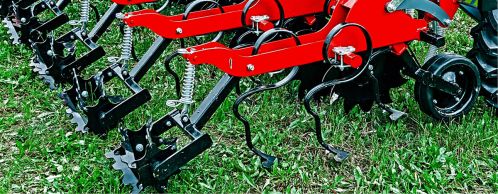
Take Control of Your Year-end Planning
Article By: Jan Schaffner of Schaffner Tax Solutions
Many of us are aware that the year-end sneaks up fast. Below are a couple of points to help you start planning early and put yourself in the driver's seat; be proactive and make this year your best by building a solid tax plan.
Review Your Previous Year's Tax Return
Individuals can review their previous year's tax return and see if there are any opportunities before year-end.
- First, review your withholding amounts on wages, and adjust, if necessary, to ensure the proper amount is withheld from each paycheck. No one wants to owe the government at year-end.
- Check to see if there are deductions from your employer that you are not taking full advantage of. For example, making a retirement contribution to your company-sponsored retirement plan can help to manage your individual tax bracket. Look to see if they offer a daycare benefit or tuition assistance program. Each of these represents money to you without increasing your taxable income.
- Review the previous year's return also to see if there is an opportunity to create taxable income this year by transferring funds from a pre-tax account to a post-tax account and taking advantage of the lower tax brackets.
Understand the Character of Income
One main key to tax planning is to understand the character of income that is being taxed. A plan can include passive income, capital gain, or business income, which all will produce different taxes. For example, if you sell stock that is held for under a year, it is not given the preferential treatment that stock is taxed when held over a year. This concept is very key to taking full advantage to maximize the tax brackets.
Look at Depreciation, Leasing, and Timing of Income
For ag producers, we can look at depreciation, leasing, and timing of income to help formulate a plan.
- Depreciation is key to many ag producers. We use assets to grow our farms and we want to deduct the cost of them to offset income. If your farm plans to purchase new or used equipment prior to year-end, you may be able to expense the entire cost in 2022 for certain assets. Either Section 179 or bonus depreciation elections are available for certain taxpayers to decrease business income.
- Leasing is a great option to consider when the timing of payments and cash flows need to be managed. Also, consider interest rates and where your cash is best serving you. By running a loan versus lease comparison can give you insight into which fits your needs best.
- Timing can be an issue for ag producers; constructive receipt requires which year a cash basis taxpayer claims the income. By tax planning, you know how much additional income is coming into this current year and can adjust accordingly. Sometimes expenses need to be accelerated or for certain credits and deductions to reduce a profit and other times, we need to slow down the expenses or accelerate income to produce a profit for certain credits.
There are many different aspects of life directly impacted by a tax return -- getting loans, financial aid for students, and obtaining health insurance to name a few. By being proactive and reviewing your specific individual situation, there can be plenty of tools available for you to take control and manage your taxes to the best solution for you.
About the Author
Jan Schaffner is the owner of Schaffner Tax Solutions LLC. Her mission is to find the right solutions that benefit you best.
Schaffner has worked in both large firms and those small-town firms built on handshakes and hard work. She is currently pursuing a master's degree in business taxation from the University of Minnesota. In her free time, Jan enjoys the great outdoors with her husband and three children near Fountain City.
For more information, visit www.schaffnertaxsolutions.com or call 608.323.3128.



